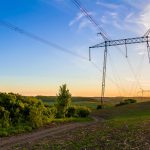

Navigating Carbon Offsetting Programs in Australia: Your Ultimate Guide to Sustainable Practices
Carbon neutrality in Australia has become a major goal for individuals, organizations, and businesses around the world. In Australia, carbon offsetting programs have emerged as an effective way to reduce emissions and help fight climate change. This guide provides an overview of carbon offsetting programs in Australia and offers information on how organizations can implement and benefit from them.
What are Carbon Offsetting Programs in Australia?
Carbon offsetting programs in Australia are designed to help individuals, organizations, and businesses reduce their carbon footprints. By investing in projects that reduce greenhouse gas emissions, participants in carbon offsetting programs can offset their own emissions and become carbon neutral.
Carbon neutrality means to balance the emissions that an organization produces with the emissions that it eliminates. For example, if a business produces 50 metric tons of CO2 per year, it can become carbon neutral by purchasing carbon credits that offset those 50 metric tons. This investment funds projects that reduce the same amount of greenhouse gas emissions, making the business emissions-free.
Choosing a Reputable Carbon Offset Provider in Australia
When selecting a carbon offset provider, it is important to choose a reputable provider that is transparent, accountable, and offers quality carbon credits. Organizations should look for providers that meet the requirements of the Australian Government’s National Carbon Offset Standard (NCOS).
Providers should offer clear information about the projects that they fund and operate with transparency about the prices they charge. CorpStage ESG Consulting Services is an established carbon offset provider in Australia.
Carbon Offset Project Types in Australia
Carbon offset projects in Australia can take many forms, including reforestation, renewable energy, and agricultural projects.
Reforestation projects promote ecosystem restoration by replanting trees on degraded land. These projects not only sequester carbon dioxide from the atmosphere, but also provide habitat for wildlife.
Renewable energy projects involve the installation of wind turbines, solar panels, or other forms of renewable energy infrastructure. These projects displace fossil fuel-based energy production, reduce greenhouse gas emissions, and contribute to the country’s renewable energy transition.
Agricultural projects often involve using regenerative agricultural practices that increase soil carbon sequestration, thereby reducing emissions from fertilizers and other agricultural inputs.
Setting Carbon Offsetting Goals for Your Organization
To set carbon offsetting goals, organizations should determine their emissions baseline and identify ways to reduce emissions. The next step is to determine the amount of carbon credits that need to be purchased to achieve carbon neutrality.
Purchasing Carbon Credits Through an Offset Provider
When purchasing carbon credits, it is important to ensure that the credits meet quality standards and are sourced from a credible provider. Carbon credits are issued by carbon offset projects and represent the amount of greenhouse gas emissions that have been avoided or removed. CorpStage ESG Consulting Services is a trusted carbon offset provider in Australia.
Verification and Registration of Carbon Credits
Verification and registration of carbon credits are critical to ensuring that credits are credible, transparent, and meet the requirements of the standards. Carbon offset providers should verify that projects meet the standards through independent third-party auditors.
Monitoring and Evaluation of Offset Projects Over Time
Carbon offset providers should provide regular updates on the performance of offset projects. Organizations should regularly monitor and evaluate their carbon offsetting programs to ensure that they are meeting their goals and contributing to climate mitigation.
Communicating Carbon Offsetting Efforts Publicly
Organizations that participate in carbon offsetting programs should communicate their efforts publicly. This can include a sustainability report that describes the emissions reduction strategy and the specific projects that are supported.
Leveraging Offsets to Achieve Larger Emissions Reductions Within Your Value Chain
Carbon offsetting programs can also be used to engage suppliers and other stakeholders in the value chain to reduce emissions. Organizations can work with suppliers to encourage the use of sustainable practices and provide access to carbon offsetting programs. This approach can create a domino effect in the value chain, encouraging more widespread adoption of sustainability practices.
Carbon offsetting programs in Australia are an effective way for organizations to reduce emissions and work towards carbon neutrality. By choosing a reputable carbon offset provider, like CorpStage setting specific carbon offsetting goals, monitoring and evaluating offset projects, and leveraging offsets to achieve larger emissions reductions, organizations can contribute to the fight against climate change. CorpStage offers services of calculating your carbon footprint and arranging carbon offset programs, contact us to learn more.






